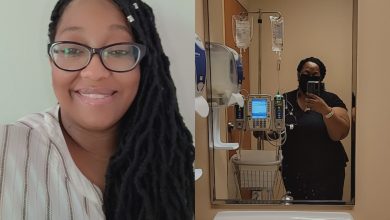Natural Ways To Sleep Better


You have trouble sleeping, but you really don’t want to take sleeping pills. It’s okay! There are plenty of other ways to get a better night’s sleep – and they’re all natural.
Awareness Breathing
Does your mind race with thoughts and worries in bed? This isn’t helping you sleep. Instead, try focusing on each breath and how it travels through your body. As it turns out, this type of conscious or awareness breathing may help you get to sleep faster, experts say.
RELATED: The Surprising Dangers Of Sleep Deprivation
“Breathing techniques help turn off the mental chatter,” says Dr. Teitelbaum. “Focusing on breathing is relaxing and a good way to disconnect from the stresses of life.” How does it work? By following the air as it moves in and out of your lungs, your mind, which generally can only focus on one thing at a time, will be occupied with your breath—not your anxieties. And it’s not as intimidating as it sounds. Simply take slow and steady—deep—breaths, focusing your thoughts on the natural inhale-exhale rhythm, and watch as your body and mind calm down.
Yoga
What can a few downward-facing dogs do for your sleep quality? A lot, researchers say. Past studies have found a correlation between yoga practice and decreased symptoms of insomnia, including one study from Harvard Medical School researchers, who found that daily 30- to 45-minute yoga sessions significantly improved symptoms for those suffering from chronic insomnia.
In another recent University of Rochester study looking at cancer survivors, a demographic that frequently reports sleep disturbances, researchers found that the movement, breathing and mindfulness of yoga significantly improved the quality of the study participants’ sleep.
Passionflower
This exotic-sounding herbal supplement is commonly used throughout South America for help with sleep and relaxation—it’s even found in some sodas. “A number of studies support its calming effect,” says Dr. Teitelbaum, who also points to evidence that the herb may have pain-relieving qualities, helping to control muscle spasms, and even menstrual pains.
Passionflower (also known as passiflora) is available over the counter at most health food and drug stores that carry herbal supplements. Dr. Teitelbaum recommends taking 90 to 360 mg of the extract at bedtime to help with insomnia.
RELATED: Your Bedtime & Your Waistline
Total Darkness
Even a flicker of light in your bedroom, from streetlights outside, your husband’s book light, the dim hue of the television, according to researchers, can affect your sleep cycles, disrupt your body’s natural clock so much that even the dimmest light in the bedroom may lead to weight gain.
Banish excessive light in your bedroom by turning off the TV; try to avoid falling asleep with lamps or




